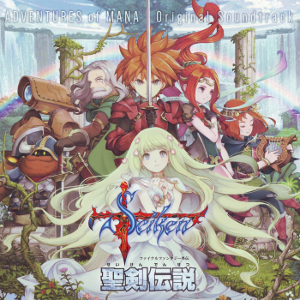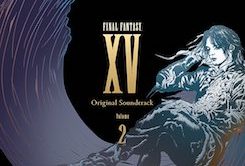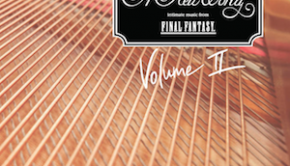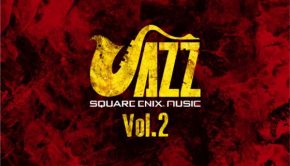Seiken Densetsu -Adventures of Mana- Original Soundtrack
 |
Album Title: Seiken Densetsu -Adventures of Mana- Original Soundtrack |
| Record Label: Square Enix |
|
| Catalog No.: SQEX-10544/5 |
|
| Release Date: March 30, 2016 |
|
| Purchase: Buy at CDJapan |
Overview
Square Enix celebrated the 25th anniversary of the Mana franchise this year by remaking the original game of the series, Final Fantasy Adventure (aka Seiken Densetsu), for iOS, Android, and Vita. For the soundtrack, original composer Kenji Ito joined forces with his Imperial SaGa collaborators Tsutomu Narita and Noriyuki Kamikura to re-arrange the entire soundtrack. Whereas the original music was made on the humble Game Boy, this soundtrack was recorded with an ensemble of string, wind, and guitar players. The end results sound infinitely better to the botched soundtrack for the Game Boy Advance remake, Sword of Mana. However, do they exceed those of the original?
Body
Throughout the soundtrack, the arrangers carefully balance the tasks of preserving the melodies/tones of the original themes and bringing them into a new era. This is reflected by the opening arrangement of the series’ main theme, “Rising Sun”, written by Kenji Ito. The arrangement is charming but predictable with its piano and strings focus, diatonic harmonisation, and regular musical form. However, the instrumental performers really capture the human emotions and spiritual undertones of the Mana series with their polished, harmonised performances. As with the other material here, it won’t win any prizes on the innovation front, but does do justice to the intentions of the original while offering top production values. Other soft pieces follow suit, notably “Requiem”, “Village”, and “The Awakening”, following suit with intimate performances from flautist Hideyo Takakuwa and oboist Mayuko Morieda lifting fairly conservative arrangements. “Chosen Path” is another clear highlight, with the arrangement capturing all the bittersweet tones of the original melodies.
While Adventures of Mana‘s adherence to the original material can be welcome, it proves troublesome when weaker original tracks are arranged. Whether the regal orchestrations of “Royal Palace”, bittersweet piano progressions of “Drowning in Despair”, or villainous orchestral suspensions of “The Duchy of Glaive”, all too many arrangements try hard to transform simple, derivative tunes into deep, emotional arrangements. However, in most cases the results end up sounding contrived. Such tracks worked fine on the Game Boy, but were never meant to be performed by session musicians. Likewise, the adaptation of “Dungeon I” captures the aura of a dungeon through its fitting blend of mystical and foreboding sounds. However, Narita’s inability to deviate from the sparing original material results in a highly underdeveloped piece that soon tires on a stand-alone basis. And for more extreme examples, no level of post-production polish can save “Fighting Arena” and “Danger” from being highly repetitive, grating panic themes.
But while Adventures of Mana has its share of problems, fans will be delighted to know that the soundtrack’s battle and field themes really deliver. Correcting all the wrongs of Sword of Mana‘s interpretation, “Endless Battlefield” delivers with a fun, polished arrangement. Clearly influenced by his Falcom work, Kamikura blends warm acoustic melodies with rocking accompaniment typical of RPG action tracks. A little less satisfying is “In Search of the Sword of Mana”, which suffers somewhat from a plodding tempo and some awkward mixing, but even this piece proves enjoyable thanks to the preservation of the unforgettable melody. As for the battle themes, the arrangements of “Believe in Victory” and “Touched by Courage and Pride” are reminiscent of Kamikura’s collaborations on the Re:Birth series. The former is a fun if underdeveloped old-school rock piece featuring a strong keyboard lead, while the latter is one of the best adaptations of Ito’s battle themes to be released: a blend of ultra-catchy violin leads, pumping rock accompaniment, and dynamic development.
There’s plenty of other material to round off the soundtrack. Light-hearted pieces such as the buoyantly-phrased, confidently-orchestrated “The Dwarves” or the goofy honkytonk tones of “Town” prove charming in small doses. For those that still can stand the theme, there’s also two decent “Chocobo” arrangements. The two other dungeon themes share similarities in approach to “Dungeon I”, but thankfully prove much more satisfying, given the arrangers introduce significant dramatic arches and dynamic range into the experience. The soundtrack also builds up some mood towards its climax with the ambiguous soundscapes of “The Mana Shrine” and “Zeal”. Unfortunately, the final battle adaptation fails to deliver on this. Arranged by Ito himself, it’s a bland violin plus rock combo that loops before the minute mark. Following an ending theme reprising the “Rising Sun” motif and a few jingles, Kamikura goes some way to compensating for this with a richer, longer, punchier rendition of “Endless Battlefield” complete with trumpet leads and guitar solos.
Summary
Overall, the soundtrack for Adventures of Mana feels strengthened yet compromised by the original material in almost equal measure. While tracks like “Endless Battlefield” and “Rising Sun” benefit from the conservative but polished arrangement approach, many others sound contrived or repetitive due to their adherence to the original music. While the soundtrack could have been better, it will generally be enjoyable by fans of the 8-bit original and also has plenty of memorable, emotional melodies to draw in newcomers alike. Cautiously recommended.
Do you agree with the review and score? Let us know in the comments below!
3.5
Posted on June 30, 2016 by Chris Greening. Last modified on July 1, 2016.














